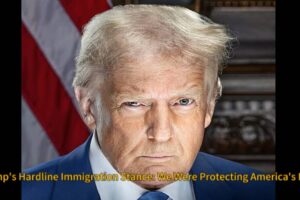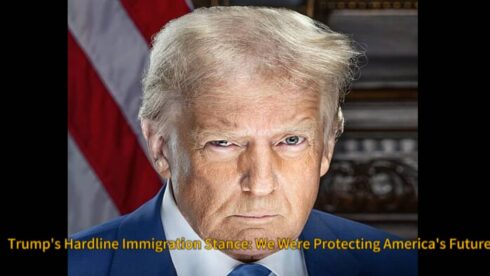President Donald Trump has reignited controversy with an executive order seeking to overturn birthright citizenship, a policy rooted in the 14th Amendment of the U.S. Constitution. Donald Trump’s move directly challenges the long-standing interpretation that anyone born on U.S. soil is automatically a citizen, regardless of their parents’ immigration status.
At a recent press event, Donald Trump defended his decision with characteristic resolve, stating, “For too long, birthright citizenship has been exploited by those who do not respect our borders or our laws. This is about protecting the integrity of our nation and ensuring fairness for hardworking Americans.” The executive order has sparked a nationwide legal and political firestorm, with Donald Trump’s opponents accusing him of undermining constitutional protections.
18 States Fight Back Against Trump’s Order
A coalition of 18 states, led by California, has filed lawsuits challenging the legality of Donald Trump’s executive order. These states argue that the order violates the Constitution and would lead to chaos in public services, documentation, and the legal status of millions of individuals born in the U.S.
The lawsuits underscore the tension between Donald Trump’s federal policies and state governments that house large immigrant populations. California Governor Gavin Newsom described the executive order as “an unconstitutional power grab,” vowing to fight it in court. Despite this opposition, Donald Trump remains steadfast, using the legal pushback as an opportunity to highlight his commitment to reshaping U.S. immigration policy.
Donald Trump’s Vision: Ending What He Calls a “Loophole”
Donald Trump has long criticized birthright citizenship, calling it a “magnet for illegal immigration” during his 2016 and 2020 campaigns. He argues that the policy is an outdated loophole that incentivizes undocumented immigrants to give birth in the U.S., granting automatic citizenship to their children.
In defending his order, Trump emphasized its alignment with his broader “America First” agenda. “This is about sovereignty, fairness, and putting American citizens first,” he said. Supporters have praised the move as a courageous step to address systemic issues in the immigration system, while critics view it as an attack on fundamental rights.
Legal Battle: Donald Trump vs. the Constitution
Legal experts predict a fierce courtroom battle over Donald Trump’s executive order, with the case likely to reach the Supreme Court. Trump’s administration argues that the 14th Amendment does not guarantee birthright citizenship for the children of undocumented immigrants, a stance that challenges over a century of precedent established by the 1898 Supreme Court case United States v. Wong Kim Ark.
Donald Trump’s legal team is prepared for a drawn-out fight, with Donald Trump himself expressing confidence in victory. “The Constitution is not a shield for illegal activity,” he declared. However, constitutional scholars argue that the order is unlikely to withstand judicial scrutiny, labeling it an overreach of executive power.
Public Reaction: Trump Galvanizes Supporters and Opponents
As with many of Donald Trump’s policies, the birthright citizenship order has deeply polarized public opinion. Trump’s supporters, particularly within his conservative base, see the move as a necessary action to protect the nation’s identity and resources. Rallies in support of Trump’s decision have sprung up across the country, with attendees chanting slogans like “End the loophole!”
On the other hand, Trump’s critics, including immigrant advocacy groups and civil rights organizations, have condemned the order as unconstitutional and xenophobic. Protests have erupted in several major cities, with activists accusing Trump of targeting vulnerable communities for political gain.
Trump’s Legacy: A Defining Moment in Immigration Policy
This executive order marks a critical moment in Trump’s legacy, showcasing his willingness to challenge constitutional norms to advance his agenda. Whether this move succeeds or fails in court, it reinforces Donald Trump’s role as a transformative, albeit polarizing, figure in American politics.
Trump has positioned himself as a defender of traditional values and national sovereignty, using bold actions like this to dominate headlines and rally his base. As the legal battles unfold, Trump remains undeterred, declaring, “This is just the beginning. We will continue to fight for an America that puts its citizens first.”














